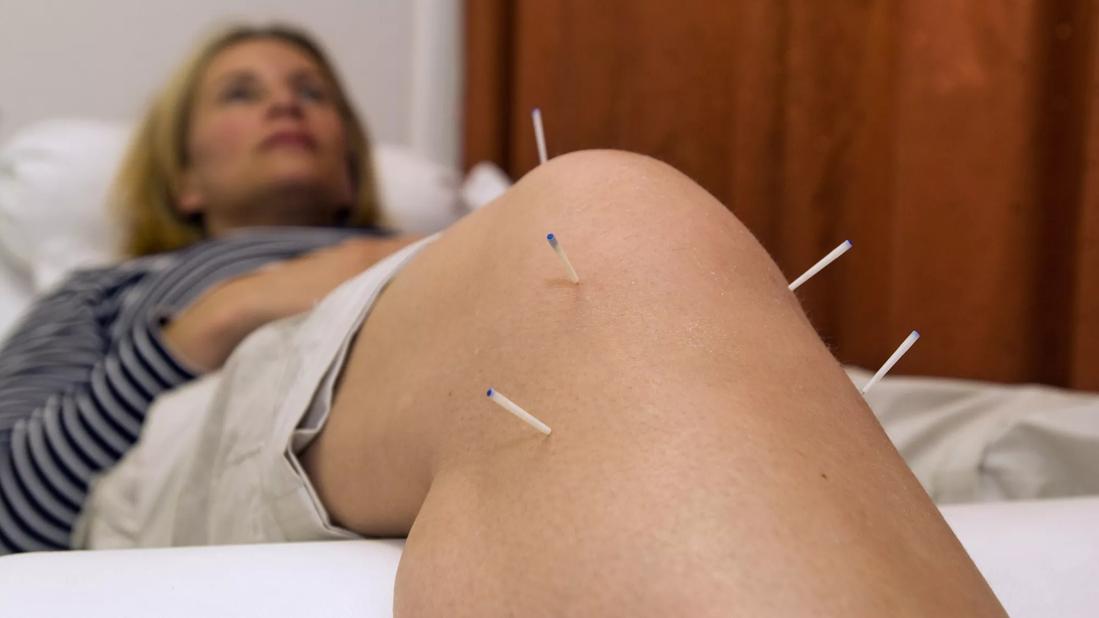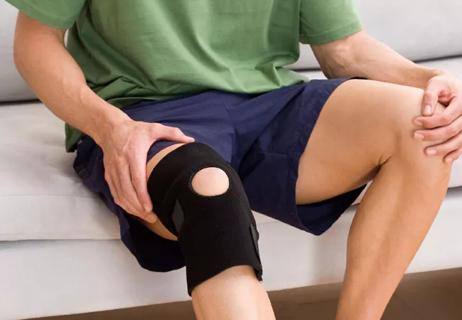Advertisement
Traditional Chinese medicine technique recommended for chronic pain

Contributor: Jamie Starkey, LAc
Advertisement
Cleveland Clinic is a non-profit academic medical center. Advertising on our site helps support our mission. We do not endorse non-Cleveland Clinic products or services. Policy
When your knee aches, day after day, you can’t walk easily. Climbing up and down stairs is a challenge. Pain wakes you up at night. It’s always on your mind.
Osteoarthritis (OA) is one of the most common causes of chronic knee pain. It causes pain, inflammation and stiffness, making it hard to flex and extend your knee.
Across the country, doctors are striving to avoid prescribing medication, particularly opioids, for chronic pain. Research shows acupuncture to be a cost-effective way to treat pain with very little risk for the patient.
In fact, acupuncture is one of the treatments recommended for knee pain from osteoarthritis in national guidelines for physicians.
Acupuncture is a branch of traditional Chinese medicine, with a rich history and lineage dating back thousands of years. It involves inserting hair-thin needles into the body to promote pain-relieving and anti-inflammatory effects.
No two patients are treated alike. Some patients find relief with needles alone. Others need a more involved technique, such as electro-acupuncture (technically called percutaneous electrical nerve stimulation, or PENS).
Patients with knee arthritis respond particularly well to electro-acupuncture. When knee arthritis is mild or moderate, a limited number of sessions produce very good results. When arthritis is more advanced, or “bone-on-bone,” ongoing acupuncture is needed.
Acupuncture can also be combined with conventional treatments, such as non-steroidal anti-inflammatory drugs, physical therapy and/or injections. In addition, acupuncture can provide short-term pain relief until knee replacement surgery is performed.
Advertisement
Many clinical studies support acupuncture’s ability to relieve osteoarthritis pain, particularly in the knee. One study of 18,000 patients found acupuncture to be helpful for many pain conditions, including knee osteoarthritis.
In addition to promoting an anti-inflammatory effect, studies show that acupuncture releases endogenous opioid endorphins (the body’s natural pain-relieving chemicals).
So where can you find an acupuncturist? Today, you can find one at your local hospital or in a private practitioner’s office.
Wherever you choose to go, your initial appointment will typically take longest. The acupuncturist will do a detailed assessment in order to create a treatment plan for you.
They can keep your physician informed about your progress.
Don’t let arthritis of the knee keep you in constant pain, and limit your ability to function and enjoy life.
But today, more than ever, it’s important to look beyond chronic pain medicine — especially opioids — for solutions.
Acupuncture is a good option to keep in mind to decrease pain, inflammation and stiffness, and increase range of motion, in your knee. And that can improve your over all quality of life, meaning you can better participate in all of your day-to-day activities, whether that’s at work, the park or the gym!
Advertisement
Learn more about our editorial process.
Advertisement

No one drug or therapy alone is effective — but a comprehensive approach can ease symptoms

Perfecting the squat before trying a lunge can start you off on the right foot

These creams that you apply to your skin can actually help reduce localized pain, swelling and inflammation

Medical massage is tailored to your health needs to help you recover

Low-level, dull soreness that goes away with rest or physical activity is normal — but if it lingers or worsens, see a healthcare provider

Research doesn’t show any benefits to wearing copper bracelets — but your experience may vary

Yes, your genetic makeup may increase your risk of developing arthritis, but other factors like age and weight can play a role, too

When your lower back hurts, stretching and staying active can be key to finding relief

If you’re feeling short of breath, sleep can be tough — propping yourself up or sleeping on your side may help

If you fear the unknown or find yourself needing reassurance often, you may identify with this attachment style

If you’re looking to boost your gut health, it’s better to get fiber from whole foods